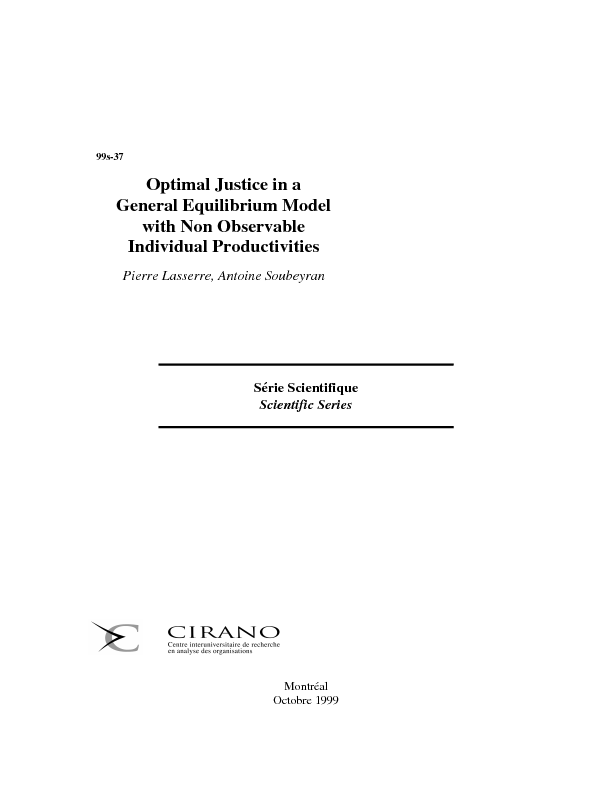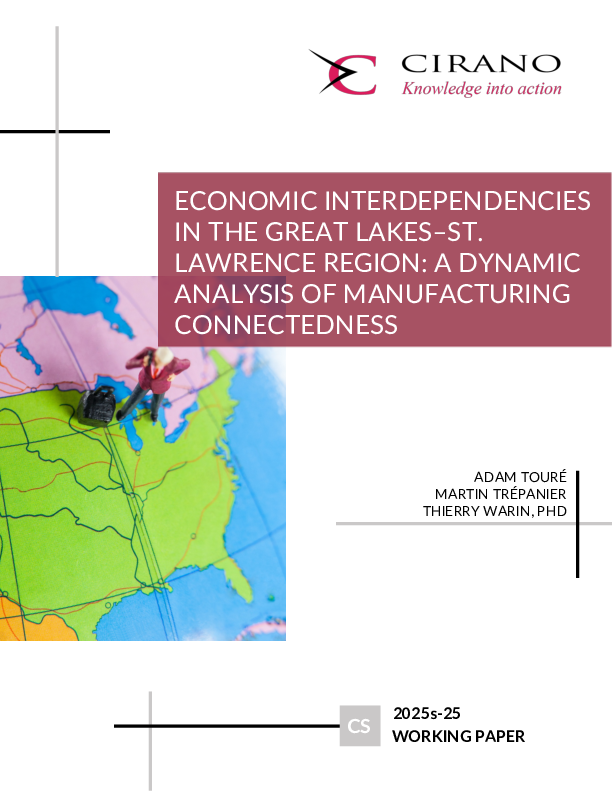Optimal Justice in a General Equilibrium Model with Non Observable Individual Productivities
In this general equilibrium model, justice and police institutions are treated as a mechanism that induces individuals to extend some desirable productive effort. This determines individual encroachment activities which in turn determine the proportion of aggregate production that fails to be appropriated, and the private incentives to choose productive activities. Since individuals have different productive abilities society would ideally take both equity and efficiency into consideration in the design of its institutions: encroachment is a form of redistribution from the most talented individuals to the least talented ones. We study the stylized properties that should arise when individual productivities are not observable by the system, and when both detection levels and justice accurary are costly instruments.
[ - ]




